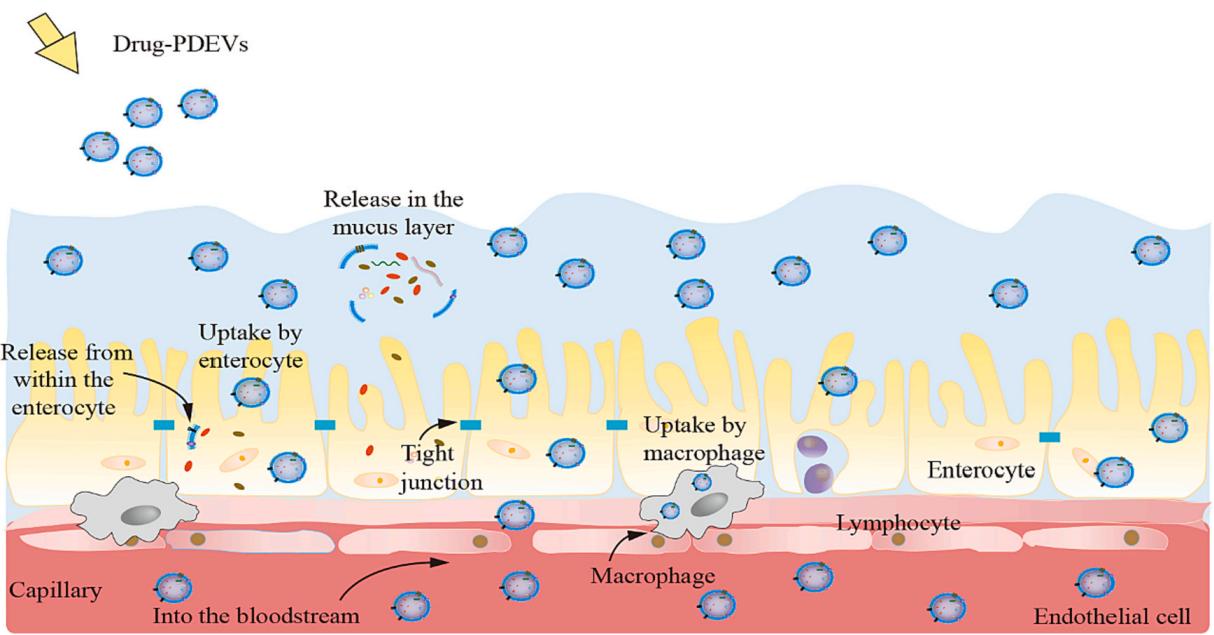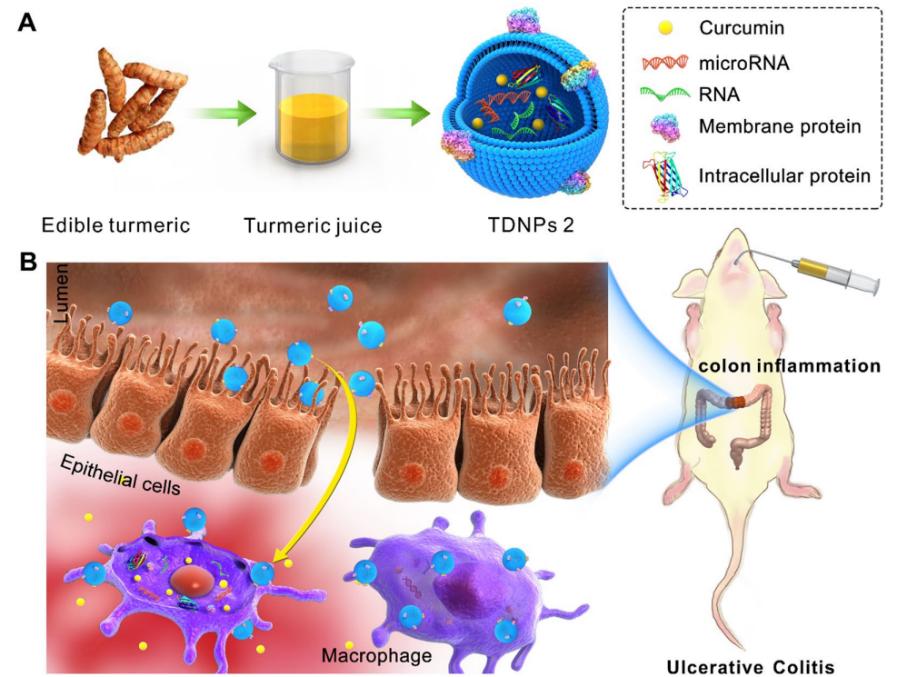Oral Exosomes Advantage and Application
Exosomes have been found to have great potential as oral drug delivery vehicles with their lipid membrane structure that resists the action of gastric acid and RNA enzymes to stably deliver their drug cargo. Creative Biolabs has a dedicated scientist team that can provide insight into the oral exosomes and research services related to exosome isolation, profiling, and functional investigation.
Oral Exosomes Advantage
Oral administration is the preferred mode of delivery for the development of formulations related to intestinal-like diseases and inflammatory conditions. The improvement of the health benefits of a wide range of foods also requires optimization of the oral delivery of nutrients and the achievement of stable delivery. However, the first-pass effect of oral conventional drugs due to intestinal mucosal digestion or hepatic inactivation and metabolism tends to lead to reduced drug quantity and bioavailability in the circulation, and presents a risk of degradation by proteases in the gastrointestinal tract, resulting in limitations in oral drug delivery, which requires the delivery of oral formulations through stable drug carriers. The excellent biological properties of exosomes can accommodate painless and non-invasive oral delivery modes, and their lower immunogenicity minimizes systemic toxicity, providing a natural advantage in the development of oral agents. Exosomes are localized in the gastrointestinal tract after oral administration and are internalized and absorbed by enterocytes and macrophages. Then, through blood circulation, the exosomes reach local or systemic tissues for symptom relief, disease treatment, maintenance of normal physiological function, assistance in the diagnosis, and disease prevention. Therefore, exploring the delivery of exosomes for oral administration is feasible and offers many advantages.
-
The lipid membrane structure of exosomes allows for stable loading and delivery of oral agents.
-
Easy to administer, non-invasive and painless, with better adherence than injectable drug delivery.
-
No direct damage to the skin or mucous membranes.
-
Lower cost and easier manufacturing of oral agents
 Fig.1 Schematic illustration of drug delivery and absorption mechanisms for PDEVs (plant-derived extracellular vesicles) as oral drug carriers. (Fang & Liu, 2022)
Fig.1 Schematic illustration of drug delivery and absorption mechanisms for PDEVs (plant-derived extracellular vesicles) as oral drug carriers. (Fang & Liu, 2022)
Oral Exosomes Application
Edible plant- and milk-derived exosomes have been found to have a more stable membrane structure that is resistant to harsh gastrointestinal environments such as gastrointestinal proteases and acidity while crossing biological barriers. In addition, edible plant- and milk-derived exosomes have excellent safety, accessibility, and high yield compared to mammalian cell-derived exosomes. Several studies have shown that these exosome-based delivery systems maintain the cargo's biological activity after oral administration and have demonstrated an acceptable safety profile and good therapeutic efficacy in inflammatory and intestinal diseases. Milk-enriched exosomes, which maintain the integrity of nucleic acids and proteins and have the potential to cross the gastrointestinal barrier under strongly acidic conditions in the stomach and degraded conditions in the intestine, have emerged as a promising tool for oral drug delivery. Astaxanthin is an active substance with a wide range of anti-inflammatory, antioxidant, and immunomodulatory properties, while its instability and susceptibility to decomposition due to the presence of substantial unsaturated bonds are the main challenges limiting its application. Milk-derived exosomes as carriers of astaxanthin have performed excellent macrophage targeting ability and anti-inflammatory efficacy. Moreover, various edible plant-derived exosomes such as ginger, strawberry, and grapefruit have also been shown to be absorbed by mouse intestinal stem cells after penetrating the gastrointestinal mucosal barrier, providing the desired vehicle for oral drug delivery. Grapefruit-derived exosomes with good resistance to gastrointestinal digestion can deliver methotrexate to lamina propria macrophages, exerting enhanced anti-inflammatory effects and reducing side effects. Similarly, oral administration of ginger-derived exosomes in mice localized to the inflamed colon delivered therapeutic effectiveness and low tissue immunotoxicity, providing strong support for the use as an oral drug carrier.
 Fig.2 Schematic illustration of turmeric-derived nanoparticles isolation and targeted ulcerative colitis therapy via oral administration. (Liu, 2022)
Fig.2 Schematic illustration of turmeric-derived nanoparticles isolation and targeted ulcerative colitis therapy via oral administration. (Liu, 2022)
Exosomes are applied to oral drug delivery systems to improve drug bioavailability and can be isolated in large quantities from milk and edible plants as oral therapeutic carriers of genes and drugs to expand the potential of drug applications. Creative Biolabs is committed to providing customized research services including exosome manufacturing and engineering modifications, having accumulated extensive experience in exosome development and research. Please feel free to contact us.
References
-
Fang, Z.; Liu, K. Plant-derived extracellular vesicles as oral drug delivery carriers. J Control Release. 2022, 350: 389-400.
-
Liu, C.; et al. Oral administration of turmeric-derived exosome-like nanovesicles with anti-inflammatory and pro-resolving bioactions for murine colitis therapy. J Nanobiotechnology. 2022, 20(1): 206.
For Research Use Only. Cannot be used by patients.
Related Services:

 Fig.1 Schematic illustration of drug delivery and absorption mechanisms for PDEVs (plant-derived extracellular vesicles) as oral drug carriers. (Fang & Liu, 2022)
Fig.1 Schematic illustration of drug delivery and absorption mechanisms for PDEVs (plant-derived extracellular vesicles) as oral drug carriers. (Fang & Liu, 2022)
 Fig.2 Schematic illustration of turmeric-derived nanoparticles isolation and targeted ulcerative colitis therapy via oral administration. (Liu, 2022)
Fig.2 Schematic illustration of turmeric-derived nanoparticles isolation and targeted ulcerative colitis therapy via oral administration. (Liu, 2022)









